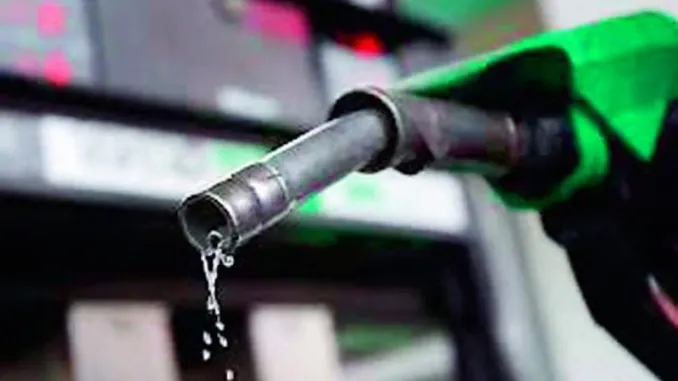The Nigerian government’s failure to extend the naira-for-crude policy for local refineries, including Dangote Refinery, has raised concerns over imminent fuel price hikes and a resurgence of inflationary pressures.
The policy, which enabled local refineries to purchase crude oil in naira rather than in dollars, was responsible for the recent decline in petrol prices.
However, with the programme’s expiration in March and no plans for renewal, economic analysts have warned of severe consequences for consumers of the product, businesses, and the overall economy.
Despite repeated attempts to obtain official clarification, the director of information in the Federal Ministry of Finance, Mohammed Manga, declined to comment on the status of negotiations between the minister of finance and coordinating minister of the economy, Wale Edun, and refinery stakeholders led by Dangote Refinery.
Insider sources reveal that the government is unwilling to renew the agreement, citing revenue losses. According to these sources, the authorities view the naira-for-crude policyas a financial compromise that deprives the government of necessary funds for intervention programmes.
Nigerians, already struggling under harsh economic conditions exacerbated by government policies, are likely to bear the brunt of the looming fuel price hike. The federal government had previously touted its economic reforms as a pathway to increased revenue generation.
However, the same policies—widely regarded as unpopular and detrimental to ordinary citizens—have contributed to economic distress.
While international financial institutions such as the International Monetary Fund (IMF) and the World Bank have endorsed these reforms, local economic experts caution that their implementation has led to widespread hardship.
The Nigerian Economic Summit Group (NESG) is one of those that have openly criticised the government’s reluctance to extend the naira-for-crude policy, warning that it could jeopardise local refining efforts.
Speaking at a media engagement in Abuja on Friday, NESG chief executive officer Dr. Tayo Aduloju stressed that the discontinuation of the policy threatened to reverse recent gains in fuel pricing and foreign exchange stabilisation.
“We want to encourage the regulator. We know it’s hard work, and none of this is as easy as it sounds. But in working together with themarket, it’s important that we do not kill the incentives that allowed Dangote to achieve what it has done for us,” Aduloju stated.
He further emphasised the significant milestone achieved in local petroleum pricing, highlighting that past predictions of affordable domestically refined petrol had been met with skepticism.
“If somebody had told us a few years ago that locally produced petrol could be sold at such a price, we would have dismissed it outright. But now, we have achieved it,” he added.
Industry stakeholders, including refinery owners and oil marketers, have expressed dissatisfaction with the government’s decision, describing it as insensitive and detrimental to price stability.
The abrupt discontinuation of the policy raises fears of a supply crisis, as local refineries may struggle to procure crude at favourable rates.
This could force them to rely on the more expensive international crude market, leading to increased production costs and, consequently, higher fuel prices at the pump.
Beyond consumer hardship, the policy reversal risks discouraging investment in Nigeria’s oil refining sector.
The naira-for-crude arrangement had been a crucial incentive, enabling local refiners to operate competitively amid fluctuating foreign exchange rates.
Investors, both local and international, may now view Nigeria as an unpredictable business environment where policy inconsistencies undermine long-term commitments.
The implications of this policy shift extend beyond the oil sector. A rise in fuel prices would directly impact transportation and production costs, triggering a ripple effect across various sectors of the economy.
Analysts warn that this could lead to a fresh wave of inflation, eroding the purchasing power of Nigerians and reversing the modest economic gains recorded in recent months.
Aduloju underscored the importance of policy consistency in achieving sustainable economic growth. “This is not a good development. We should all work together to find a better option that works for Nigeria. In the end, Nigerians were promised these reforms would create a more enabling environment. When it becomes difficult,
it almost looks like we forgot what we promised. And that’s not good for the government or the people,” he noted. As the March deadline for the naira-for-crude programme lapses without an extension in sight, the Nigerian government faces mounting pressure to reconsider its stance. The stakes are high: failure to act could exacerbate economic hardship, destabilise the refining sector, and erode investor confidence.
For a government that has repeatedly assured citizens of its commitment to economic reforms, allowing fuel prices to soar may prove to be a costly political and economic miscalculation.





